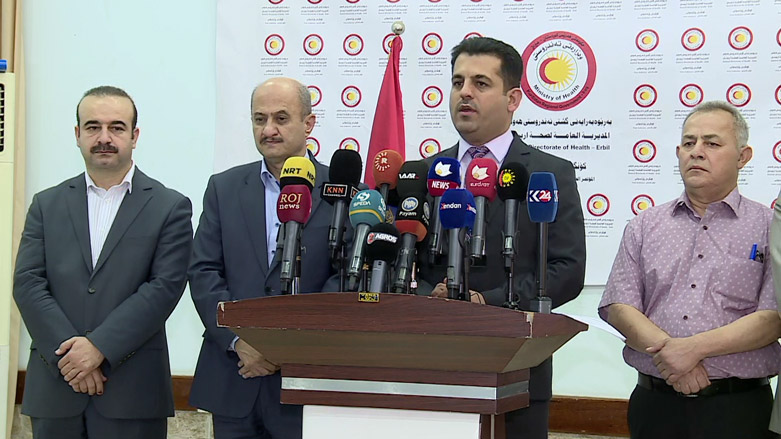Erbil Health Director refutes rumors of Ebola cases in Kurdistan
A Kurdish health official on Thursday denied recent rumors that people in the Kurdistan Region have contracted Ebola, stating it is nothing more than falsehoods being spread by social media.

ERBIL (Kurdistan 24) – A Kurdish health official on Thursday denied recent rumors that people in the Kurdistan Region have contracted Ebola, stating it is nothing more than falsehoods being spread by social media.
General-Director of Erbil Health Directorate Saman Barzinji said in a press conference that his agency has fully reviewed blood tests that screen for the disease and all show ‘negative’ results.
Over the past few days, postings on Kurdish social media networks have claimed that cases of Ebola had been discovered in the Kurdistan Region, namely in Erbil.
Barzinji said that they were confident that the rumors are baseless, but that the KRG and Baghdad spoke at length and reviewed blood samples to make sure, given the severity of the disease.
“We got the official confirmation from Iraq’s Health Ministry that all the checks show ‘negative’ results,” said the Kurdish official.
Barzinji mentioned that the Kurdistan Regional Government (KRG) coordinates closely with the Iraqi Health Ministry and international health organizations regarding the registration of transmitted infections and diseases across the country.
The social media posts may have been caused by media attention surrounding a current Ebola outbreak in the Democratic Republic of Congo that has caused 19 deaths so far. The World Health Organization (WHO) announced on Friday it would use an experimental vaccine in an attempt to stop it from spreading further.
Barzinji pointed out that the disease has never been detected in Iraq, the Kurdistan Region, or any neighboring countries, a statement confirmed by WHO publications. He credited this to successful counter-measures undertaken by health officials.
Ebola virus disease (EVD) is a highly contagious and often lethal disease that presents flu-like symptoms early on, but which goes on to impair liver and kidney functions and can cause both internal and external bleeding. It is transmitted by contact with bodily fluids of those infected and with surfaces, bedding, clothing, etc. that have been contaminated.
The disease first appeared in 1976 in the Democratic Republic of Congo in a village near the Ebola River, from which the disease takes its name, and in what is now South Sudan.
Editing by John J. Catherine
